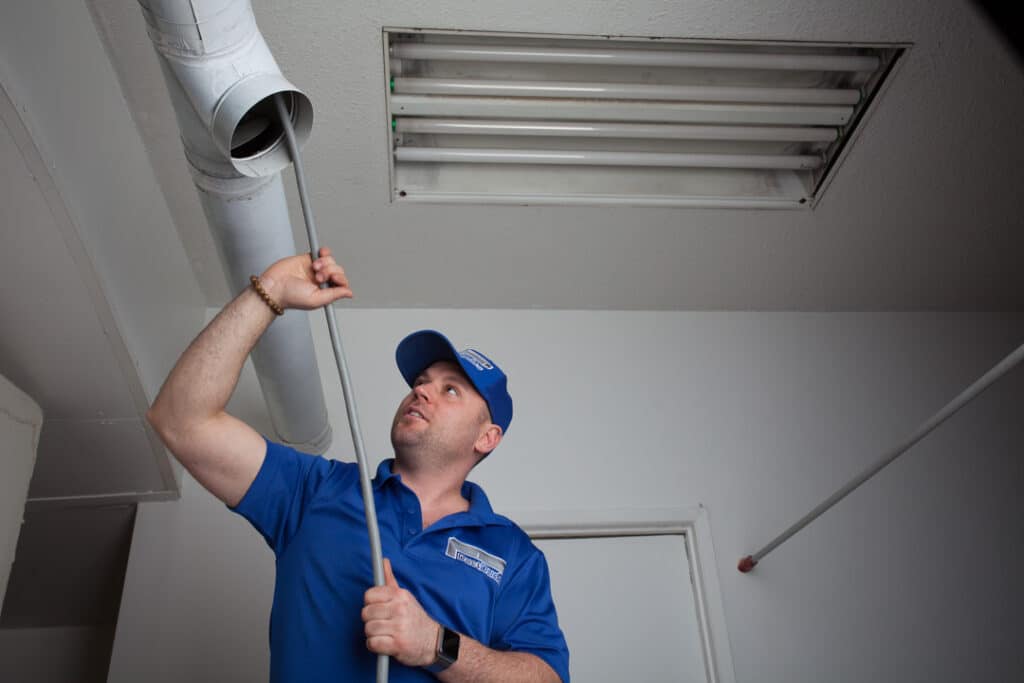If you’ve ever wondered, what is a BMS system for HVAC, you’re not alone. With the rise of smart homes and advanced commercial properties, more people are interested in how technology can help manage heating, ventilation, and air conditioning systems.
This guide will walk you through everything you need to know about Building Management Systems (BMS) for HVAC, a topic that is crucial for both homeowners and business owners. The BMS system is a part of a larger framework aimed at enhancing energy efficiency and operational performance.

Introduction to BMS Systems
BMS, or Building Management Systems, are technological solutions that help monitor, control, and optimize various building functions. These systems are critical for modern buildings aiming for maximum energy efficiency and operational performance.

How BMS Works with HVAC
The BMS integrates with the HVAC systems to provide optimal control over the environment within a building. It adjusts settings based on real-time data, ensuring the heating and cooling systems work efficiently.
Components of a BMS in HVAC
A BMS system for HVAC typically includes sensors, controllers, and software interfaces. These components work in harmony to provide a seamless, automated control over the environment.
Sensors
Sensors detect various parameters such as temperature, humidity, and occupancy. This data is crucial for the BMS to make informed decisions.
Controllers
Controllers act on the data collected by sensors. They regulate HVAC equipment to maintain a comfortable and energy-efficient environment.
Software Interface
The software interface allows human operators to interact with the system, making it easier to monitor performance and make necessary adjustments.

Benefits of Using a BMS System for HVAC
Implementing a BMS for HVAC systems offers various benefits, from improved energy efficiency to better indoor air quality.
Energy Efficiency
A well-designed BMS ensures that energy is used only when necessary, reducing wastage and lowering utility bills.
Cost Savings
With optimized energy use, both homeowners and business owners can save significantly on energy costs.
Improved Indoor Air Quality
By precisely controlling temperature and humidity, a BMS helps maintain a healthier indoor environment.
Real-World Applications
From residential properties to commercial buildings, BMS systems have wide-ranging applications.
Residential Applications
In homes, BMS systems automate HVAC functions, providing residents with comfort and energy savings.
Commercial Applications
In commercial settings, these systems play a vital role in maintaining operational efficiency and workplace comfort.
Future Trends in BMS and HVAC
The future of BMS in HVAC is exciting, with advancements like AI and IoT promising even greater efficiency and control.
AI Integration
AI can further optimize HVAC systems by learning patterns and making real-time adjustments.
IoT Connectivity
IoT allows different systems within a building to communicate, providing more integrated and efficient management.
Choosing the Right BMS for Your Needs
Selecting the right BMS system depends on your specific requirements, whether you’re a homeowner or a business owner.
For Homeowners
Consider factors like ease of use, integration with existing systems, and upfront costs and savings.
For Business Owners
Look for solutions that offer scalability, robust performance, and excellent technical support.
Installation and Maintenance
Proper installation and regular maintenance are crucial for getting the most out of your BMS system.
Installation Process
Hiring qualified professionals is essential for a smooth and effective installation.
Maintenance Tips
Regular maintenance ensures your BMS system remains effective and efficient.
Common Pitfalls and How to Avoid Them
Being aware of common pitfalls can help you avoid costly mistakes when implementing a BMS system for HVAC.
Poor Planning
Lack of proper planning can result in suboptimal system performance. Ensure you have a clear understanding of your needs.
Neglecting Maintenance
Regular maintenance is crucial for longevity. Neglecting it can lead to system failures and increased costs.
Case Studies
Real-world examples can provide valuable insights into the benefits and challenges of using a BMS for HVAC.
Case Study 1: Residential Building
This case study explores how a residential building implemented a BMS system and reaped energy savings.
Case Study 2: Commercial Office
Learn about a commercial office that optimized its HVAC system using a BMS and significantly reduced operational costs.
FAQs
What is a BMS system for HVAC?
A BMS system for HVAC is a control system that manages and optimizes the heating, ventilation, and air conditioning functions of a building.
How does a BMS system improve energy efficiency?
A BMS system improves energy efficiency by using real-time data to adjust HVAC settings, ensuring minimal energy wastage.
What are the costs associated with a BMS system?
The costs can vary based on the complexity and scale of the system, but the long-term savings often outweigh the initial investment.